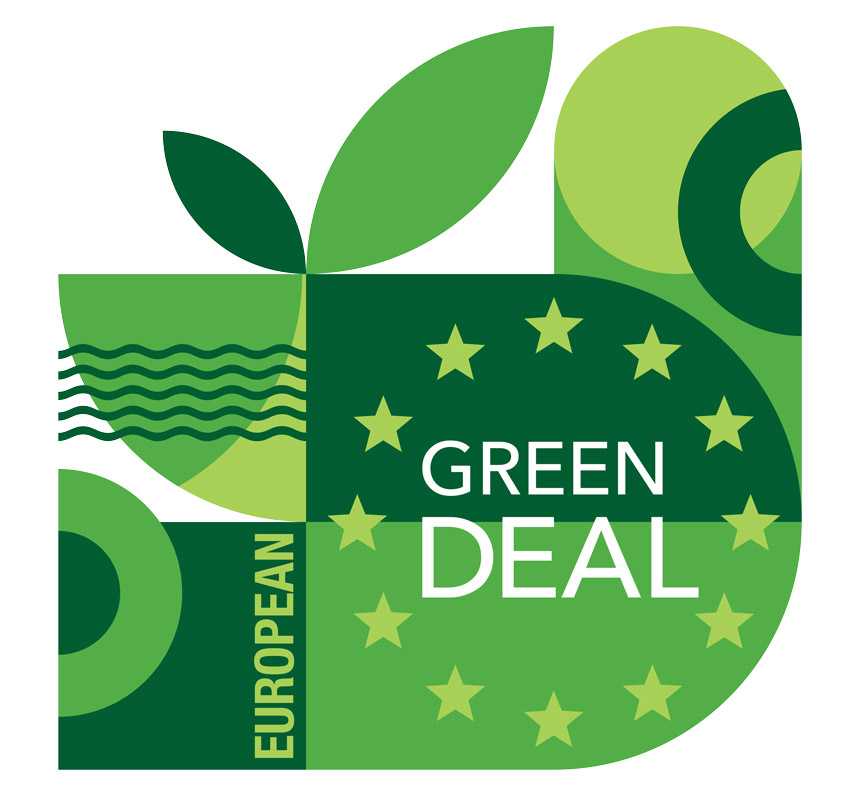

Over the previous four years, the European Union has made addressing climate change a top priority, with a plethora of new legislation and revisions of existing ones under the umbrella of the European Green Deal—supported and championed by the European Commission’s leadership—with the aim of reaching bloc-wide climate neutrality by 2050. The EU has effectively become the global standard setter for green policies.
This is arguably one of the biggest policy shifts seen in the developed world in recent years, as full implementation of these ambitions will effectively reshape businesses, investors and consumers’ choices across every sector. In the months leading to the elections, the EU’s leadership will face the delicate task of balancing a credible commitment to green policies while also providing support to its industry. The EU is currently under considerable pressure from internal regulation, foreign competition, increasing energy costs and a rise in right-wing populism across the bloc. With the majority of European citizens becoming more aware of the changes necessary to mitigate the severe consequences of climate change—as shown by a recent Eurobarometer survey—climate policy is expected to be a prominent issue in Brussels and the national capitals during the 2024 campaign and elections.
The Missing Pieces
Despite ongoing pressure from civil society and green lawmakers, the completion of the Green Deal agenda by the current executive and legislative bodies of the EU is far from secure. Although the elections are less than a year away, key pieces of legislation still need to be proposed and will likely slip into the next Commission’s mandate. Proposals yet to come include those to tackle the unintended release of microplastics, revise the bloc’s chemicals legislation and introduce the Animal Welfare Regulation. In addition, the Energy Taxation Directive, the Packaging and Packaging Waste Regulation and the reform of the electricity market, just to name a few, have become embroiled in a slow and contentious political battle between parties and Member States.
Even within the European institutions, political shifts have started to endanger the will to get the Green Deal over the finish line. The recent reshuffle in the European Commission added to this uncertainty after former Commissioner for the Green Deal Frans Timmermans, the face of the bloc’s green ambitions, chose to step down from his position. The new commissioners for climate action—Wopke Hoekstra—and for the Green Deal—Maroš Šefčovič—will be challenged to sustain the same level of ambition for green policies in the waning months of the mandate.
Political Parties’ Agenda
Polling ahead of the 2024 European elections suggests that traditional moderate parties on both the left and right may lose seats, while right-wing populists could gain substantial ground. In powerful EU Member States like Germany, France and Italy, right to far-right parties are projected to consolidate gains made over the last few years. This shift will undoubtedly influence environmental and climate policies during the new mandate, as seen in the current EU mandate where right-leaning groups have attempted to dilute or stall legislation, including the Nature Restoration Law.
In addition to parliamentary discussions, prominent political figures have expressed their views publicly. French President Emmanuel Macron recently demanded “a European regulatory pause” on environmental restrictions (partially rebalanced by the recent planification ecologique package), while President of the European Parliament Roberta Metsola asserted that the increasing number of climate and industrial regulations in the EU is causing voters to lean towards populist parties. Metsola’s comments, in particular, have triggered concern, being a highly unusual shift in tone from the president of what is known for being the most progressive body of the EU.
Most recently, President of the European Commission Ursula von der Leyen, in her State of the Union speech, nodded at conservative concerns as she avoided addressing any future step forward in green legislation. On the contrary, she is mulling over putting on the legislative brakes and initiating a period of economic realism with implementation and dialogue with industry and farmers. This move to directly address industry and agriculture could be decisive in gaining support for her political future, should von der Leyen decide to run for another five-year term as the president of the European Commission.
As we approach the elections next June, all signs are pointing to a decreased EU ambition in climate policies, in what may be a strategic shift to focus on strengthened economic resilience and competitiveness of a European industrial base currently challenged by other global players such as China, India and the United States. Certainly, sustainability will be a hot topic in the discussions around the elections, and party leaders will have to strike a balance between industry interests and effectively protecting the environment and its resources.
The fate of the EU’s green ambitions through the next EU mandate until 2029 is yet to be determined. To remain globally competitive, the institutions will need to find a balance between climate action and support for industry. Businesses will play a crucial role in helping lay out this path, advocating for viable and effective green legislation and, at the same time, demonstrating readiness to adapt to climate change’s disruptions.


